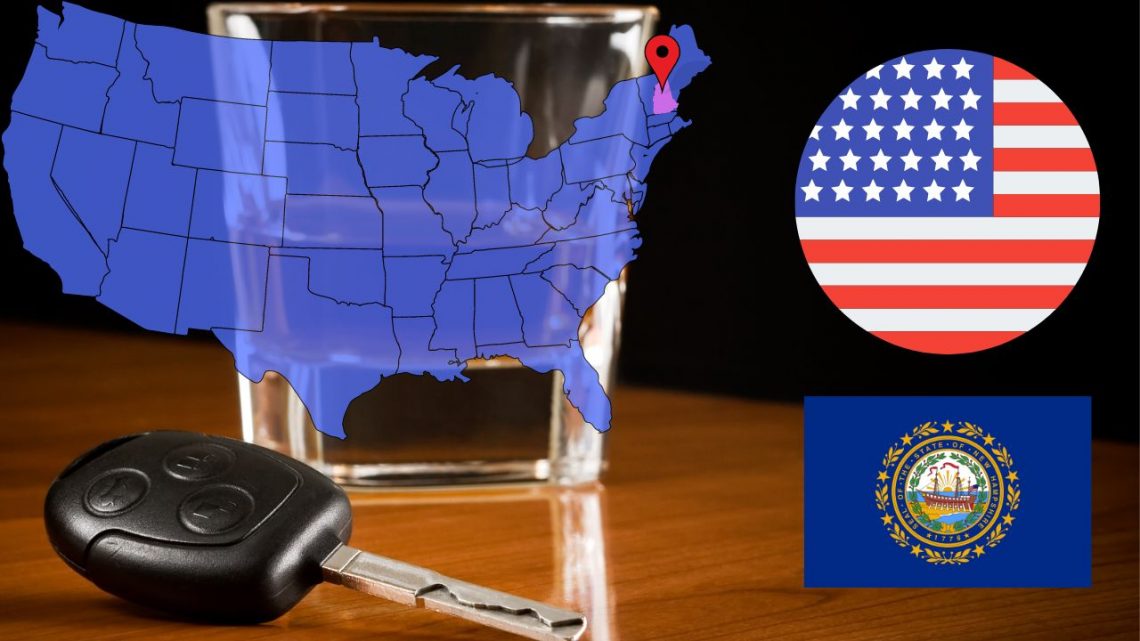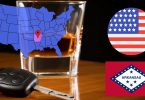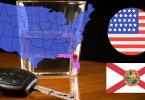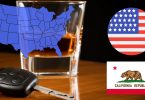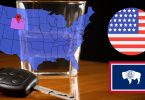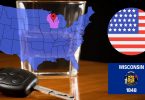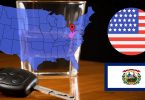In New Hampshire, the permissible blood alcohol concentration (BAC) must not surpass 0.08% (equivalent to 80 milligrams of alcohol per 100 milliliters of blood).
What is the legal alcohol limit for driving in New Hampshire?
In New Hampshire, the legal alcohol limits for driving vary based on the type of driver’s license and the driver’s age. These limits are set to ensure the safety of all road users by reducing the risk of alcohol-related accidents. Below are the specific legal Blood Alcohol Concentration (BAC) limits for different categories of drivers:
- Regular Drivers: The legal limit is 0.08% BAC, which means 80 milligrams of alcohol per 100 milliliters of blood.
- Commercial Drivers: Individuals holding a commercial driver’s license are subject to a stricter limit of 0.04% BAC.
- Minors (Under 21): For drivers under the age of 21, it is illegal to operate a vehicle with any detectable amount of alcohol in their system.
Drink and Drive Penalties and Punishments in New Hampshire
In New Hampshire, the consequences for driving under the influence of alcohol or drugs are severe and varied, depending on the nature of the offense. These penalties are designed to discourage impaired driving and ensure public safety on the roads. It’s crucial for drivers to understand these consequences and adhere to the law to avoid facing these serious repercussions. The state outlines specific penalties under RSA 265-A:18 for offenses related to intoxication or being under the influence of drugs. To stay updated on any changes or revisions to these laws, it’s advised to frequently check the official state website. Here’s a breakdown of the key penalties and punishments:
- First-Time Offenders under RSA 265-A:2, I will face:
- A class B misdemeanor charge.
- A minimum fine of $500.
- Mandatory referral to an Impaired Driver Care Management Program (IDCMP) for screening and, if necessary, further evaluation and treatment.
- Requirement to complete an approved impaired driver education program before driving privileges are restored.
- Payment of all fees related to the IDCMP and treatment services.
- License revocation for at least 9 months, with possible extensions and conditions for reinstatement.
- Aggravated DWI Offenses involve:
- A class A misdemeanor for less severe cases, with a minimum fine of $750 and mandatory jail time.
- Installation of an interlock device as ordered by the court.
- Longer license revocation periods for more serious aggravated DWI charges, with mandatory evaluations and compliance with treatment plans.
- Repeat Offenders face increasingly harsher penalties, including:
- Higher fines and longer mandatory jail sentences.
- Indefinite license revocation with specific conditions for petitioning for restoration based on the number of offenses.
- Special Cases such as driving with a minor in the vehicle at the time of the offense result in maximum revocation periods and additional requirements for rehabilitation and education programs.
The law also stipulates that no part of the minimum mandatory sentences can be suspended or reduced, underscoring the seriousness with which New Hampshire treats driving under the influence. It’s also important to note that convictions become part of the offender’s driving record, potentially affecting their future in significant ways.
Given the complexity and severity of DWI/DUI penalties in New Hampshire, individuals are strongly encouraged to consult the official state website regularly for the most current information and to understand fully the legal implications of these offenses.
How to Calculate if Your Blood Alcohol Content (BAC) is Legal in New Hampshire
In New Hampshire, law enforcement officials use breathalyzers and blood tests to determine a driver’s blood alcohol content (BAC). These methods are considered reliable indicators of a person’s impairment level. When pulled over, a police officer may administer a breathalyzer test on the spot if alcohol impairment is suspected. For more precise measurements, or in cases where breathalyzers are refused or deemed inappropriate, blood tests may be conducted at a medical facility. Understanding your own BAC before driving is crucial to ensure you’re within legal limits and to avoid the severe penalties associated with DUI offenses in New Hampshire.
As an experienced phlebologist with a decade of expertise, I recommend two proactive ways to check your BAC level:
- Use a High-Quality Alcohol Breathalyzer: Based on my professional experience, the BACtrack S80 is one of the most accurate breathalyzers available in New Hampshire. It offers professional-grade accuracy and is DOT & NHTSA approved, as well as FDA 510(k) cleared. I highly recommend keeping one in your vehicle. This device can help New Hampshire residents gauge their BAC level more accurately, providing a clear indication of whether or not it’s safe to drive. Given the variability in how individuals metabolize alcohol, having a personal breathalyzer can prevent the misjudgment of one’s own impairment levels.
- Utilize My BAC Calculator: I have collaborated with fellow phlebologists and web developers to create an online BAC calculator. This tool considers factors like your weight, the type and amount of alcohol consumed, and the time elapsed since drinking to estimate your BAC level. While it provides a useful approximation, it’s important to remember that this and any other BAC calculator cannot account for every variable affecting absorption and metabolism of alcohol in your body.
It’s essential to bear in mind that neither method guarantees 100% accuracy due to the complex nature of how alcohol affects the body. Factors such as your metabolic rate, food intake, and individual health conditions can influence your BAC. Therefore, these tools should be used as guides to assist in making responsible decisions regarding alcohol consumption and driving. They can offer valuable insights and potentially deter you from driving when your BAC is near or over the legal limit of 0.08%.
Remember, the safest approach is always not to drive if you’ve consumed alcohol or if there’s any doubt about your sobriety. The consequences of driving under the influence in New Hampshire are severe and can have lasting impacts on your life and the safety of others.
Ways to Avoid Driving with a High BAC in New Hampshire
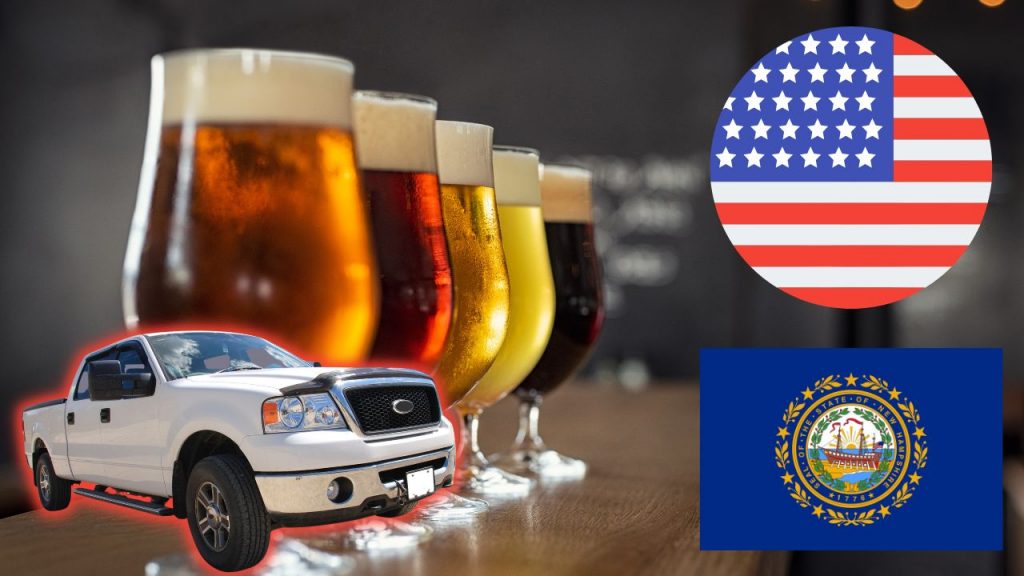
Driving under the influence of alcohol poses significant risks to yourself, others on the road, and can lead to severe legal consequences in New Hampshire. Fortunately, there are several strategies and services available to help you avoid driving with a high Blood Alcohol Content (BAC). Here are some recommendations:
- Use Ride-Sharing or Local Taxi Services: Before heading out, plan how you’ll get back home safely if you intend to drink. Ride-sharing apps like Uber or Lyft offer a convenient and readily available option to get you home without getting behind the wheel. Additionally, local taxi companies provide reliable services throughout New Hampshire. For instance, if you’re in Manchester, consider using 603 Airport Service LLC, or if you’re in Nashua, D.C. Transportation is a great choice. These services can be easily contacted and are a safe alternative to driving after consuming alcohol.
- Order a Designated Driver Service: If you find yourself in a situation where you’ve driven to a location and then consumed alcohol, another option is to use a designated driver service. This service involves hiring a professional driver to drive you home in your own vehicle, ensuring both you and your car get back safely without the need to leave your vehicle behind. In Manchester, DK Airport Limousine Service, LLC offers such services, and in Nashua, you can opt for Royal Airport Car Service. A simple Google search for “designated driver service” in your city will provide you with options available in your area.
These services not only help in avoiding driving with a high BAC but also contribute to the broader goal of reducing alcohol-related accidents on the roads. It’s important to plan ahead and consider these alternatives as part of your night out, especially if alcohol will be involved. By choosing not to drive under the influence, you’re taking a responsible step towards ensuring your safety and the safety of others. Always remember, no matter how inconvenient it may seem at the moment, the consequences of driving with a high BAC are far more severe and can have lasting impacts.
Sticking to DUI Laws in New Hampshire
In 2020, New Hampshire reported 104 traffic deaths, with 36% involving drivers who exceeded the 0.08% BAC limit. The state has strict DUI laws to prevent drunk driving.
Before driving, check your BAC with a breathalyzer to ensure it’s under the legal limit. Opt for cabs, Uber, or designated driver services after drinking.
For the latest on DUI rules, visit New Hampshire’s DMV website. Remember, even small amounts of alcohol can impair driving. Always consider alternative transportation if you’ve been drinking to stay within legal BAC limits and ensure safety.

